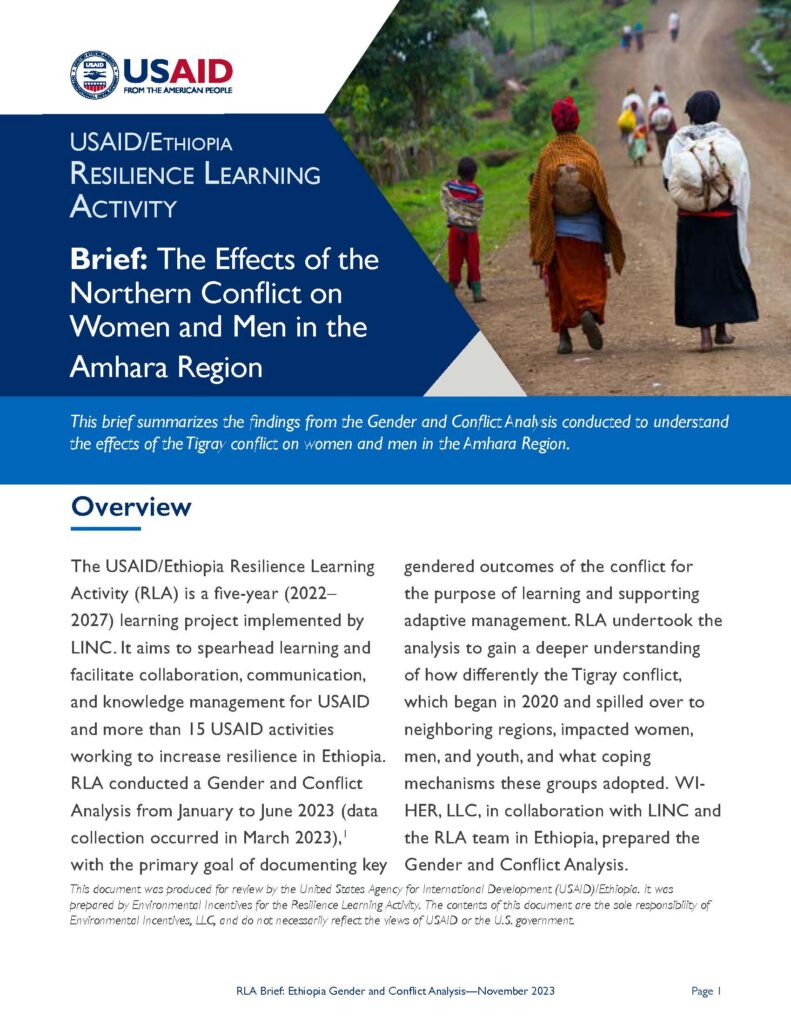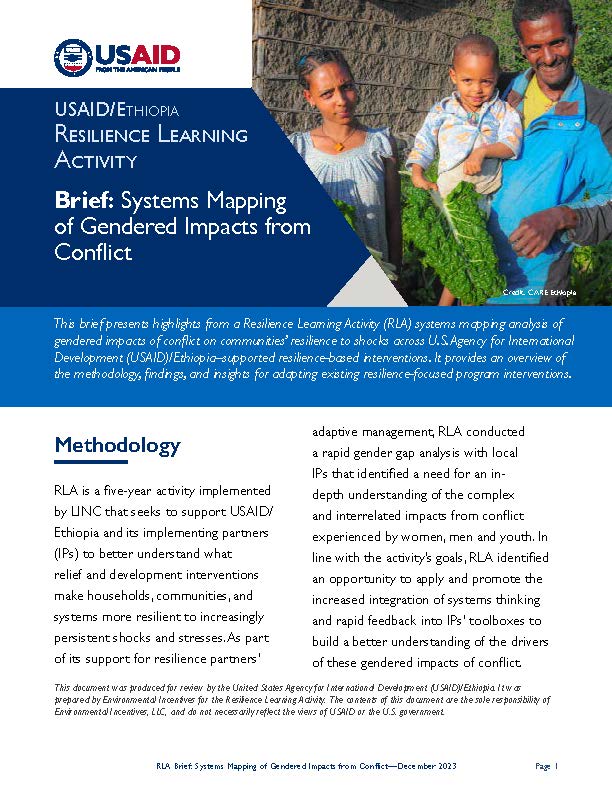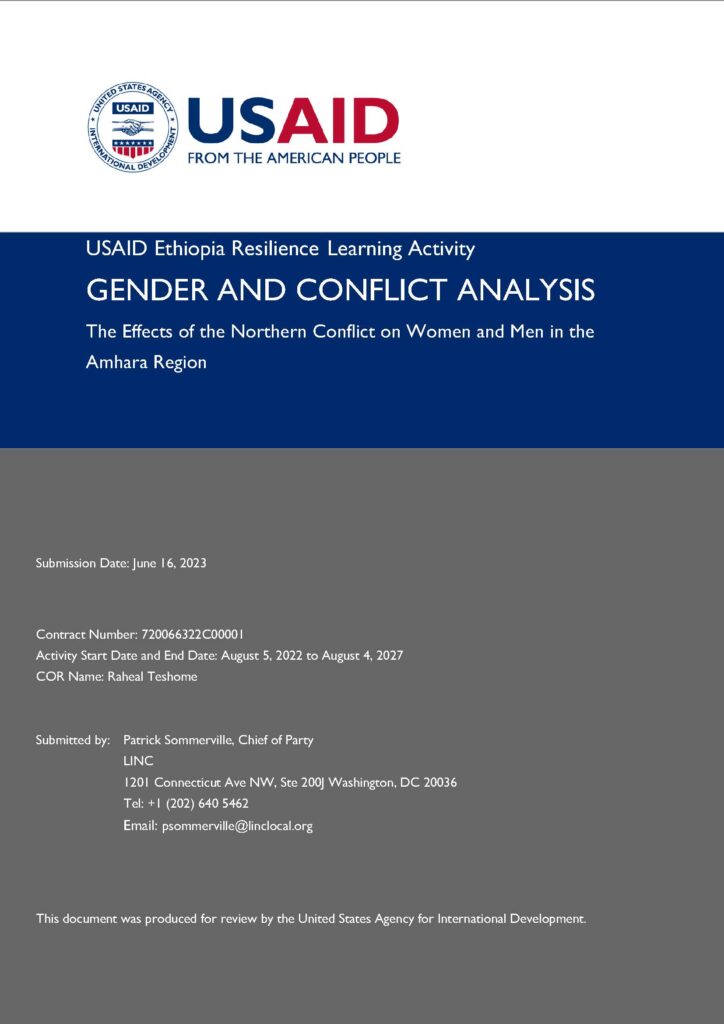Ethiopia Resilience Learning Activity: Learning Brief on the Effects of the Tigray Conflict on Women and Men
To better mitigate the impact of conflicts and violence, we must first understand the different factors that affect how individuals experience shocks and stressors that arise due to conflict. By gaining a better understanding of the complex and interrelated impacts of conflict—including political, economic, ethnic, and climate-related—we can enhance our programs and interventions, ultimately building the resilience of our partners and communities.
As a part of these efforts, the USAID-funded Resilience Learning Activity (RLA) in Ethiopia is a five-year learning and adaptive management project focused on supporting USAID/Ethiopia and implementing partners to better collaborate and communicate across more than 15 USAID activities dedicated to strengthening the resilience of Ethiopia in various areas. WI-HER, in collaboration with prime partner LINC and the RLA team in Ethiopia, contributed to these efforts by conducting a Gender and Conflict Analysis focused on the conflict in Ethiopia, which originally began in Tigray in late 2020.
The analysis conducted by WI-HER focused on investigating the gendered impact of the conflict in Tigray and the surrounding regions, including how women, men, and youth have coped with the ongoing violence. The subsequent learning brief and report created by WI-HER, in collaboration with LINC and program partners, contribute to USAID/Ethiopia and implementing partners’ understanding of what drives the gendered impacts of conflict, including impacts on household decision-making, women’s workload, loss of critical infrastructure, and more. Our findings, alongside those of our implementing partners, are available through three documents:

Learning Brief: The Effects of the Northern Conflict on Women and Men in the Amhara Region – summarizes the methodology, findings, and recommended actions from the Gender and Conflict Analysis.

Learning Brief: Systems Mapping of Gendered Impacts from Conflict – shares highlights from a RLA systems mapping analysis of gendered impacts of conflict on communities’ resilience to shocks across USAID/Ethiopia-supported resilience-based interventions.

USAID RLA Gender and Conflict Analysis – builds a common understanding of direct investments in resilience-building strategies and interventions that demonstrably result in more resilient households, communities, and systems.
The briefs and final report aim to mitigate gaps and barriers to gender equality while simultaneously offering recommendations on how to better address the needs of women and youth, in particular, in conflict settings.